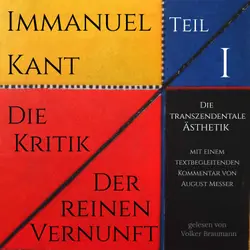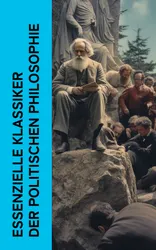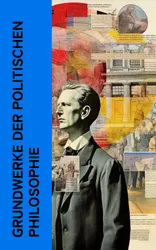Immanuel Kant's 'The Kantian Ethics: Metaphysics of Morals, The Critique of Practical Reason & Perpetual Peace' is a seminal work that delves into the philosophical underpinnings of ethics and morality. Kant's writing style is characterized by its rigor and clarity, making it accessible to both scholars and general readers. This comprehensive volume explores the metaphysical foundations of moral principles and examines the role of reason in ethical decision-making, drawing on Kant's concepts of autonomy and duty. The inclusion of 'Perpetual Peace' showcases Kant's thoughts on international relations and the possibility of achieving lasting peace among nations. This work is a cornerstone of modern ethics and philosophy, influencing subsequent thinkers in the field. Immanuel Kant, a renowned German philosopher of the Enlightenment era, was driven by a commitment to reason and rationality in his exploration of ethics and metaphysics. His background in theology and metaphysics informed his groundbreaking ideas on morality and the nature of human agency. Kant's philosophical inquiries laid the groundwork for his ethical system, which emphasizes the importance of moral duty and the autonomy of the individual. His works continue to shape contemporary debates in philosophy and ethics. Scholars and readers interested in deepening their understanding of ethics and moral philosophy should delve into Immanuel Kant's 'The Kantian Ethics.' This collection of Kant's key texts provides valuable insights into the foundations of ethical thought and the role of reason in moral decision-making. Kant's enduring influence on modern philosophy makes this book essential reading for anyone seeking a comprehensive grasp of ethical theory.

Crítica de la Razón Pura
Immanuel Kant
audiobook
An Answer to the Question: What is Enlightenment?
Immanuel Kant
audiobook
Preisschrift über die Fortschritte der Metaphysik
Immanuel Kant
book
Allgemeine Naturgeschichte und Theorie des Himmels : Die kosmologische Revolution der Aufklärung: Naturgesetze und die Struktur des Universums
Immanuel Kant
book
Immanuel Kant zum Reinhören
Immanuel Kant
audiobook
Die Kritik der reinen Vernunft : Die transzendentale Ästhetik
Immanuel Kant
audiobook
Ikuiseen rauhaan
Immanuel Kant
audiobook
Träume eines Geistersehers : erläutert durch Träume der Metaphysik
Immanuel Kant
audiobook
50 Meisterwerke der Philosophie : Metaphysik, Das Gastmahl, Bhagavadgita, Tractatus logico-philosophicus, Kritik der reinen Vernunft, Also sprach Zarathustra, Selbstbetrachtungen von Marcus Aurelius
Ludwig Wittgenstein, Edmund Husserl, Karl Marx, Søren Kierkegaard, Friedrich Nietzsche, Ralph Waldo Emerson, John Stuart Mill, Georg Wilhelm Friedrich Hegel, Friedrich Schelling, Johann Gottlieb Fichte, Immanuel Kant, John Locke, Montesquieu, Jean Jacques Rousseau, David Hume, Gottfried Wilhelm Leibniz, Baruch Spinoza, Konfuzius, Laotse, Platon, Xenophon, Aristoteles, Marcus Tullius Cicero, Seneca, Epiktet, Marc Aurel, Plotin, Thomas von Aquin, Nicolaus von Cues, Erasmus von Rotterdam, Niccolò Machiavelli, Tommaso Campanella, Martin Luther, Giordano Bruno, Samuel von Pufendorf, Abbé Castel de Saint-Pierre, Michel de Montaigne, René Descartes, Francis Bacon, Blaise Pascal
book
Essenzielle Klassiker der politischen Philosophie : Der Staat, Der Gesellschaftsvertrag, Der Fürst, Utopia, Manifest der Kommunistischen Partei, Geschichte der Socialdemokratie
Niccolò Machiavelli, Montesquieu, Friedrich der Große, Platon, Aristoteles, Marcus Tullius Cicero, Tommaso Campanella, Thomas Morus, Samuel von Pufendorf, Abbé Castel de Saint-Pierre, Jean Jacques Rousseau, Immanuel Kant, Johann Gottlieb Fichte, Karl Marx, Friedrich Engels, Wilhelm von Humboldt, Friedrich Christoph Dahlmann, Franz Mehring, Johann Most, John Henry Mackay, Rosa Luxemburg, Erich Mühsam
book
Grundwerke der politischen Philosophie : Der Staat, Der Gesellschaftsvertrag, Der Fürst, Utopia, Manifest der Kommunistischen Partei, Geschichte der Socialdemokratie, Parlamentarischer Kretenismus
Platon, Aristoteles, Marcus Tullius Cicero, Niccolò Machiavelli, Tommaso Campanella, Thomas Morus, Samuel von Pufendorf, Abbé Castel de Saint-Pierre, Jean Jacques Rousseau, Montesquieu, Immanuel Kant, Friedrich der Große, Johann Gottlieb Fichte, Karl Marx, Friedrich Engels, Wilhelm von Humboldt, Friedrich Christoph Dahlmann, Franz Mehring, Johann Most, John Henry Mackay, Rosa Luxemburg, Erich Mühsam
book
Schriften zur Geschichtsphilosophie, Ethik und Politik : Kants Betrachtungen zur Ethik und Vernunft in der Gesellschaft
Immanuel Kant
book
